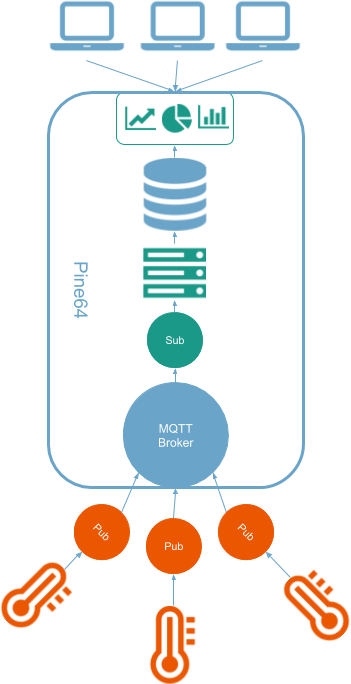 Both st Pauls university and Foundation University are working on innovative agricutlure projects. Sustainable aquaponics and aquaculture are among the methods being used. Both depend on good water quality for the fish to survive. Monitoring the water quality and taking active steps to improve the water quality are important. Being able to automate this greatly reduces the work involved in the farms and increases the chances for success.
Both st Pauls university and Foundation University are working on innovative agricutlure projects. Sustainable aquaponics and aquaculture are among the methods being used. Both depend on good water quality for the fish to survive. Monitoring the water quality and taking active steps to improve the water quality are important. Being able to automate this greatly reduces the work involved in the farms and increases the chances for success.
Both universities have therefore teamed up to develop a water proof, electronic continuous sensor platform that measures the water quality at configurable intervals and sends the values for the different parameters back to a central hub where it can be stored in a database and used in web- or other applications. This monitoring platform will allow us to initially just show farmers the status of the aquaculture setup in for instance a mobile app. Later on we could expand it with automated interventions based on the water quality values.
The parameters that we currently have access to electronics sensors for are:
- acidity (pH)
- dissolved oxygen (dOx)
- electro-conductivity (ec)
- temperature
For more information on different types of sensors and water quality variables, see our documentation.
The goal of this project is to integrate these into one waterproof floating platform that measures these values and reports them back to the central hub.
Tasks
- Develop a first prototype of the sensor platform using an NodeMCU microcontroller that measures the set water quality parameters and sends them as MQTT messages to a dashboard in NodeRED
- Develop a backend with websocket interface for storing the sensor values
- Develop a mobile (ios+android) application that uses the websocket interface to retrieve the sensor values from the backend and displays them in the app in graphs
- Design and build a floating water proof housing to house the sensor platform. The platform should be able to house 1 or 2 18650 li-ion batteries for power and a small solar panel to charge the batteries.
- Test the whole design in 1 or 2 locations in st Pauls university or Foundation University
- Evaluate your test and report on and present your findings and recommendations for future development.